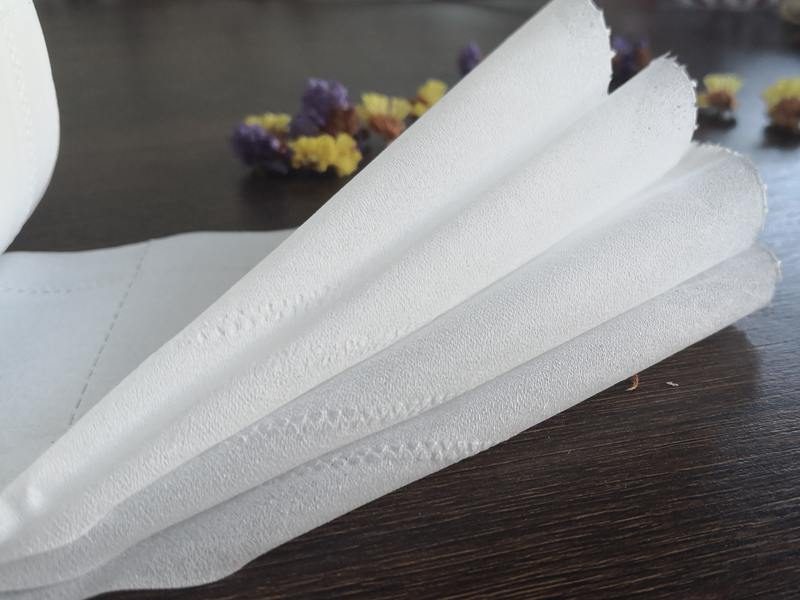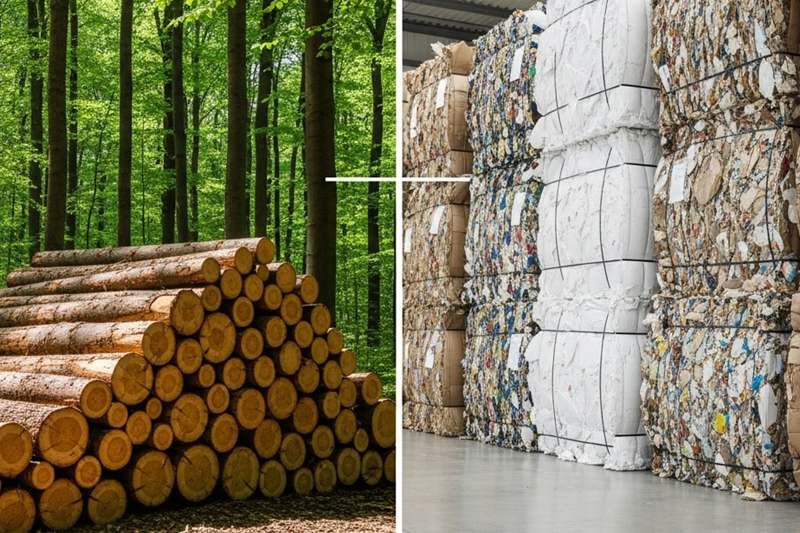The choice between virgin and recycled toilet paper involves a complex balance of environmental impact, product quality, and sustainability considerations that extends beyond simple assumptions about which option is “greener.” While recycled toilet paper could save million trees felled annually for toilet paper production and reduces carbon emissions by 30-70%, virgin toilet paper offers superior softness and absorbency due to its longer fiber structure, with FSC-certified options providing a middle ground for environmentally conscious consumers seeking premium quality.
The Virgin vs. Recycled Toilet Paper Debate
Recycled alternatives present a compelling environmental case, potentially saving all 712 million trees currently harvested while consuming 50% less water and 65% less energy than virgin production.
The carbon footprint reduction reaches 30%, making recycled toilet paper appear as the clear environmental winner. However, the recycling process introduces its own complexities: shorter fiber length from repeated processing may require consumers to use more sheets per application, while the intensive de-inking and bleaching stages—unnecessary in virgin production—add chemical treatments and energy consumption that partially offset the environmental gains.
Tailor Your Toilet Paper Brand to Fit Your Needs
With over 30 years of experience in toilet paper manufacturing, Top Source Hygiene offers customized solutions, ensuring quality and sustainability for your brand. Whether you're in hospitality, retail, or other sectors, we provide a range of options to suit your market requirements.
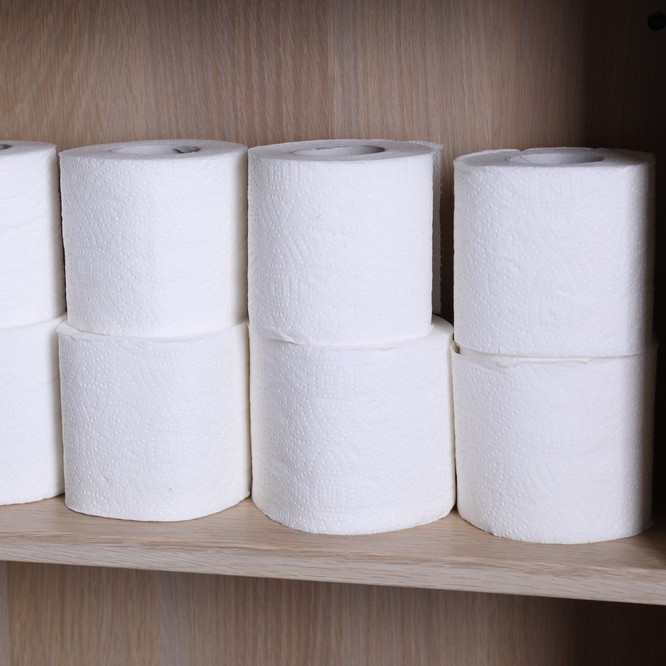
Toilet Paper Raw Materials: A Look at Virgin Pulp and Recycled Paper Sourcing
Understanding the raw materials behind your toilet paper choice reveals fundamental differences in sourcing, processing, and environmental implications that directly impact both product quality and ecological footprint.
Virgin Pulp Toilet Paper Materials:
- Sourced directly from freshly harvested trees, primarily combining hardwood species (like eucalyptus and birch) for strength and softwood varieties (such as pine and fir) for absorbency
- FSC-certified virgin pulp represents a crucial middle ground, ensuring forests are managed according to strict environmental and social standards while maintaining the superior fiber quality that virgin materials provide
- The pulping process involves breaking down wood fibers through chemical or mechanical methods, creating long, strong fibers that contribute to the characteristic softness and durability of premium toilet papers
Recycled Paper Materials and Processing:
- Post-Consumer Recycled (PCR) content comes from used paper products like newspapers, magazines, and office paper that consumers have discarded, while Pre-Consumer waste consists of manufacturing scraps and trimmings that never reached consumers
- The recycling transformation involves a multi-stage process: de-inking to remove printing materials, flotation to separate contaminants, washing to eliminate residual chemicals, and bleaching to achieve the white appearance consumers expect
- Each recycling cycle shortens fiber length by approximately 20-30%, explaining why recycled toilet paper typically feels less soft and may require more sheets per use compared to virgin alternatives
Toilet Paper Production Differences: How Virgin and Recycled Paper Are Made
Virgin Toilet Paper Manufacturing Process:
-
Chemical pulping breaks down wood fibers using sodium hydroxide and sodium sulfide at temperatures reaching 170°C, dissolving lignin while preserving cellulose fibers for maximum strength
-
Chlorine dioxide bleaching removes remaining impurities and creates the bright white appearance consumers expect, though this process generates chlorinated organic compounds that pose environmental concerns
-
The paper machine processes pulp at speeds exceeding one mile per minute, using massive Yankee Dryers heated to remove moisture content down to 5%
-
Creping—scraping dried paper off the Yankee Dryer with metal blades—creates the characteristic soft, slightly wrinkled texture but reduces sheet strength
-
Virgin production requires substantial water usage, with the paper stock mixture containing 99.5% water and only 0.5% fiber during formation
Recycled Toilet Paper Production Differences:
- De-inking flotation uses soap-like surfactants and air bubbles to lift ink particles from fiber surfaces, followed by washing stages to remove chemical residues
- Oxygen, ozone, sodium hydroxide, or peroxide replace chlorine-based bleaches, reducing toxic byproduct formation while achieving whiteness standards
- The shortened fiber length from previous recycling cycles eliminates the need for aggressive creping, as recycled fibers naturally produce softer sheets
- Converting machines unwind, slit, and rewind the finished paper onto cardboard tubes before cutting into standard 4.5″ x 4.5″ rolls
Energy consumption drops by approximately 65% compared to virgin production due to eliminated wood chipping and reduced chemical processing requirements
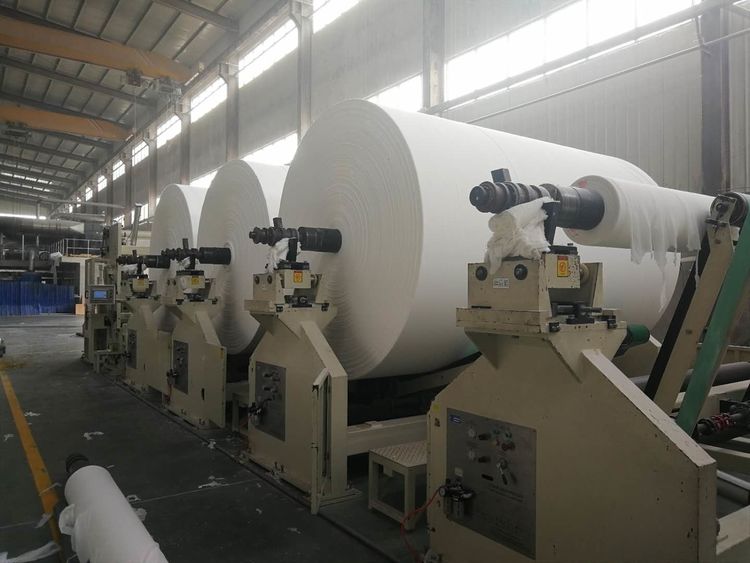
The Environmental Impact of Toilet Paper: A Data-Driven Comparison
The data reveals striking differences in environmental performance between virgin and recycled toilet paper across key metrics of carbon emissions, water consumption, and resource conservation. These quantified impacts provide concrete evidence for consumers weighing environmental considerations against product preferences.
| Environmental Factor | Virgin Toilet Paper | Recycled Toilet Paper |
|---|---|---|
| Carbon Emissions | Baseline production levels | 30-70% lower CO₂ emissions |
| Water Usage | 37 gallons per roll | Significantly reduced consumption |
| Energy Consumption | High electricity demand for heating and drying | 65% less energy required |
| Forest Impact | 1.5 pounds virgin pulp per roll | Zero tree harvesting needed |
| Waste Diversion | Creates new waste streams | Diverts post-consumer waste from landfills |
| Manufacturing Chemicals | Chlorine bleaching required | Alternative oxygen-based bleaches |
Carbon Footprint Analysis: Studies consistently demonstrate that recycled paper production generates 30-70% fewer carbon dioxide emissions compared to virgin alternatives, with greenhouse gas reductions of approximately 568 kilograms of CO₂ equivalent per kilogram of tissue paper. The carbon advantage stems from eliminating energy-intensive logging operations, reducing transportation of raw materials, and bypassing the wood pulping process that requires massive electrical consumption for heating and chemical processing.
Resource Conservation Benefits: Beyond carbon reduction, recycled toilet paper delivers substantial resource savings through waste stream diversion—transforming post-consumer materials like newspapers and office paper that would otherwise occupy landfill space into functional products. Water conservation represents another significant advantage, as virgin production’s chlorine bleaching and chemical treatment processes consume 37 gallons per roll while contributing to local water body pollution. The elimination of tree harvesting through recycled alternatives could theoretically preserve entire forest ecosystems, including Canada’s carbon-sequestering boreal forests that currently supply much of the world’s virgin pulp.
Tailor Your Toilet Paper Brand to Fit Your Needs
With over 30 years of experience in toilet paper manufacturing, Top Source Hygiene offers customized solutions, ensuring quality and sustainability for your brand. Whether you're in hospitality, retail, or other sectors, we provide a range of options to suit your market requirements.

Quality Differences Between Virgin and Recycled Toilet Paper: Softness vs. Strength
The quality differences between virgin and recycled toilet paper stem from fundamental fiber characteristics that directly impact user experience, with virgin pulp’s longer cellulose fibers creating measurably superior softness and strength while recycled alternatives have undergone significant technological improvements to narrow the performance gap.
| Quality Metric | Virgin Pulp Toilet Paper | Recycled Toilet Paper |
|---|---|---|
| Fiber Length | 2-5mm intact cellulose fibers | 20-30% shorter from recycling cycles |
| Softness Rating | Premium softness from creping process | Moderate softness, improved with TAD technology |
| Tensile Strength | High wet/dry strength retention | Lower strength, compensated by multi-ply construction |
| Absorbency | Superior liquid absorption capacity | Adequate absorption, may require more sheets |
| Texture | Smooth, lint-free surface | Slightly rougher, potential for fiber shedding |
| Ply Construction | Often single-ply premium options | Typically multi-ply for strength compensation |
Virgin Pulp Quality Advantages: The science behind virgin toilet paper’s superior performance lies in its pristine fiber structure—unbroken cellulose chains measuring 2-5 millimeters create a dense network that maximizes both strength and absorbency. Through-Air-Drying (TAD) technology combined with controlled creping allows manufacturers to achieve exceptional softness without sacrificing durability, explaining why premium brands consistently use virgin pulp for their highest-quality products. The longer fibers also enable effective single-ply construction, reducing manufacturing complexity while maintaining performance standards that satisfy consumer expectations for luxury bathroom tissue.
Recycled Paper Quality Innovations: Modern recycled toilet paper production has addressed historical quality concerns through advanced processing techniques that optimize shortened fiber performance. Multi-layered construction compensates for individual fiber weakness, while improved de-inking processes reduce the rough texture traditionally associated with recycled products. Leading eco-friendly brands now achieve softness ratings within 15-20% of virgin alternatives through specialized bonding agents and micro-creping technologies, though they typically require 10-15% more sheets per use to match virgin paper’s absorbency and cleaning effectiveness.
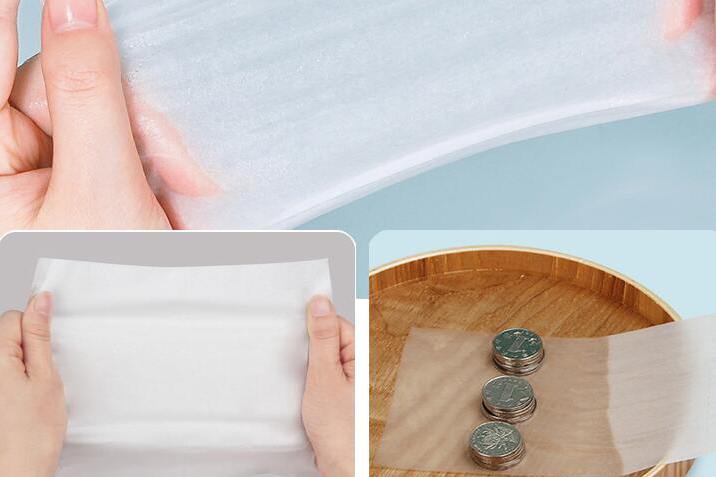
Choosing Sustainable Toilet Paper: A Guide for Consumers and Businesses
Understanding product labels becomes crucial for environmentally conscious consumers navigating the toilet paper market. “PCF” (Processed Chlorine-Free) designation indicates that recycled content underwent bleaching with oxygen, peroxide, or ozone instead of chlorine compounds, reducing toxic byproduct formation during manufacturing. Post-consumer recycled content percentages reveal the actual proportion of household waste materials—look for products containing 80-100% PCR content to maximize environmental benefits. Beyond traditional paper options, bamboo toilet tissue emerges as a rapidly renewable alternative that grows 35 times faster than trees while requiring no pesticides or fertilizers, though it typically commands premium pricing due to specialized processing requirements.
-
FSC-certified virgin alternatives provide a compromise between environmental responsibility and quality performance
-
Biodegradable packaging and plastic-free wrapping indicate comprehensive sustainability approaches
-
Third-party environmental certifications like EcoLogo or Green Seal validate manufacturer claims
-
Local sourcing reduces transportation emissions and supports regional circular economy initiatives
Business Considerations for Sustainable Product Development:
Companies developing private-label toilet paper must balance cost structures with growing consumer demand for environmentally responsible products, as 73% of global consumers report willingness to pay premium prices for sustainable goods. Sourcing high-quality recycled or FSC-certified materials requires establishing relationships with suppliers who can provide consistent fiber quality while meeting volume requirements—recycled content typically costs 15-20% more than virgin pulp but offers marketing differentiation in competitive retail environments. Businesses should consider implementing comprehensive sustainability programs that include waste prevention, recycling initiatives, and responsible material selection to align with regulatory requirements and consumer expectations.
The procurement process demands careful evaluation of supplier certifications, quality control standards, and production capacity to ensure reliable product performance while maintaining environmental credentials throughout the supply chain.
Tailor Your Toilet Paper Brand to Fit Your Needs
With over 30 years of experience in toilet paper manufacturing, Top Source Hygiene offers customized solutions, ensuring quality and sustainability for your brand. Whether you're in hospitality, retail, or other sectors, we provide a range of options to suit your market requirements.

Conclusion:
The verdict on virgin versus recycled toilet paper depends on your priorities: environmental impact versus performance. Recycled toilet paper offers significant environmental benefits with 40-70% lower carbon emissions, water conservation, and no tree harvesting—potentially saving all 712 million trees felled annually for toilet paper. Virgin pulp provides superior softness, absorbency, and durability through longer fiber structures.
Advancing recycling technology is narrowing the quality gap, with modern recycled products achieving softness within 15-20% of virgin alternatives. FSC certification offers environmentally responsible virgin options for quality-focused consumers. When purchasing, look for high post-consumer recycled content or FSC certification to align your choice with both performance needs and environmental values, driving industry innovation toward sustainable solutions.

